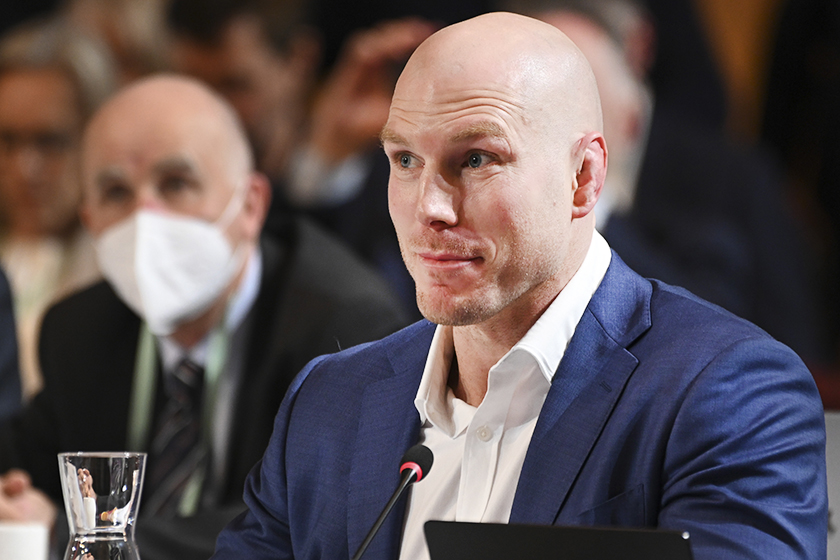ATO governance needs reform: IPA-Deakin SME Research Centre
The IPA-Deakin SME Research Centre has examined the shortcomings of the ATO’s governance model and proposed a Tax...
READ MORE
Ahead of the 2024 Federal Budget, we spoke with Senator David Pocock about the necessary reform of Australia’s tax system.

A lack of fairness, efficiency and simplicity in Australia’s taxation system hampers Australia’s ability to respond to challenges, and has created an environment in which tax change, if not full reform, is very much on the agenda.
In this environment it is important to ensure good ideas are heard, agrees David Pocock, Senator for ACT.
“The Labor Government’s recent decision to answer calls from the crossbench to redesign the Stage Three Tax Cuts to make them more equitable needs to mark the start of a conversation about broader tax reform,” Senator Pocock says. It’s worth noting here that Pocock is an independent – not part of either major party.
“Our current tax settings incentivise so many things that aren’t in the interests of the majority of Australians.”
There are numerous taxation areas in which reform must be discussed, Senator Pocock says, from stamp duty to the subsidies paid to mining companies.
They include “property tax concessions that reduce the tax burden on wealthier Australians and make it harder for people to buy their first home,” he says.
He also points out the “fossil fuel subsidies being handed out in the middle of a climate emergency, failing to extract our fair share of revenue from our own natural resources despite almost $1 trillion of government debt”.
“These are just a few examples where our tax system isn’t working for us,” Pocock says
Taxation reform was one of the focus topics of the pre-Budget submission filed by the IPA. Fundamental change, the submission says, has been hindered – but is now urgently required to support economic growth, promote competition, and enhance innovation and adaptability.
Substantially increased Government debt, weighed down by COVID packages, also demands a new taxation approach as the current tax system, relying heavily on personal and company income taxes, remains fiscally risky.

The IPA submission recommends reform based around fairness, efficiency and simplicity, removing the complexity that comes from various layers of Federal and State taxes, as well as inefficient taxes such as stamp duty and payroll tax.
Immediate attention should also be paid to GST exemptions, the IPA paper recommends, which currently restrict the percentage of consumption on which GST can be payable to 47%.
Other taxation areas that must be addressed include:
Senator Pocock, on the topic of the narrow tax base, says, “We can start broadening the tax base by overhauling the Petroleum Resource Rent Tax, rather than asking lower- and middle-income Australians to foot the bill for key government services that need more funding”.
He is also concerned about the complexity of the tax system, particularly the detrimental effect of that complexity on owners and managers of small businesses.
“I’ve heard concerns from small business owners about inconsistencies between state-based taxes that make it hard to do business across borders,” he says.
Changes around the taxation and funding models for small and medium-sized businesses is important, Senator Pocock says, because “research and development spending as a proportion of GDP is at a record low, languishing far behind the OECD average and Labor’s own target”.
“And this at a time when we should be doubling down on our world-class research and tech innovation ecosystem, looking for opportunities to build new sources of revenue through the commercialisation of Australian research.”
Australia did not participate in the most recent Global Entrepreneurship Monitor, which grades economies on factors that support the emergence and growth of new and small businesses from 0 (inadequate) through 5 (sufficient) to 10 (very adequate).
Last time Australia did participate, in 2019, it earned a 4.2 for R&D transfer – the likelihood of new research being translated into new businesses.
<div class="flourish-embed flourish-chart" data-src="visualisation/17179819"><script src="https://public.flourish.studio/resources/embed.js"></script></div>
Most important is a political environment that demonstrates unity in its drive to create fundamental reform at a time that it is urgently required.
“There are solutions available to us,” Senator Pocock says. “What we need is the political will to implement them and the political courage to have a genuine public conversation about tax reform in this country.”
Join the IPA’s 2024 Federal Budget Breakfast on 15 May, virtually or in The Great Hall at Parliament House, for an in-depth discussion of theBudget announcements. Find out more.